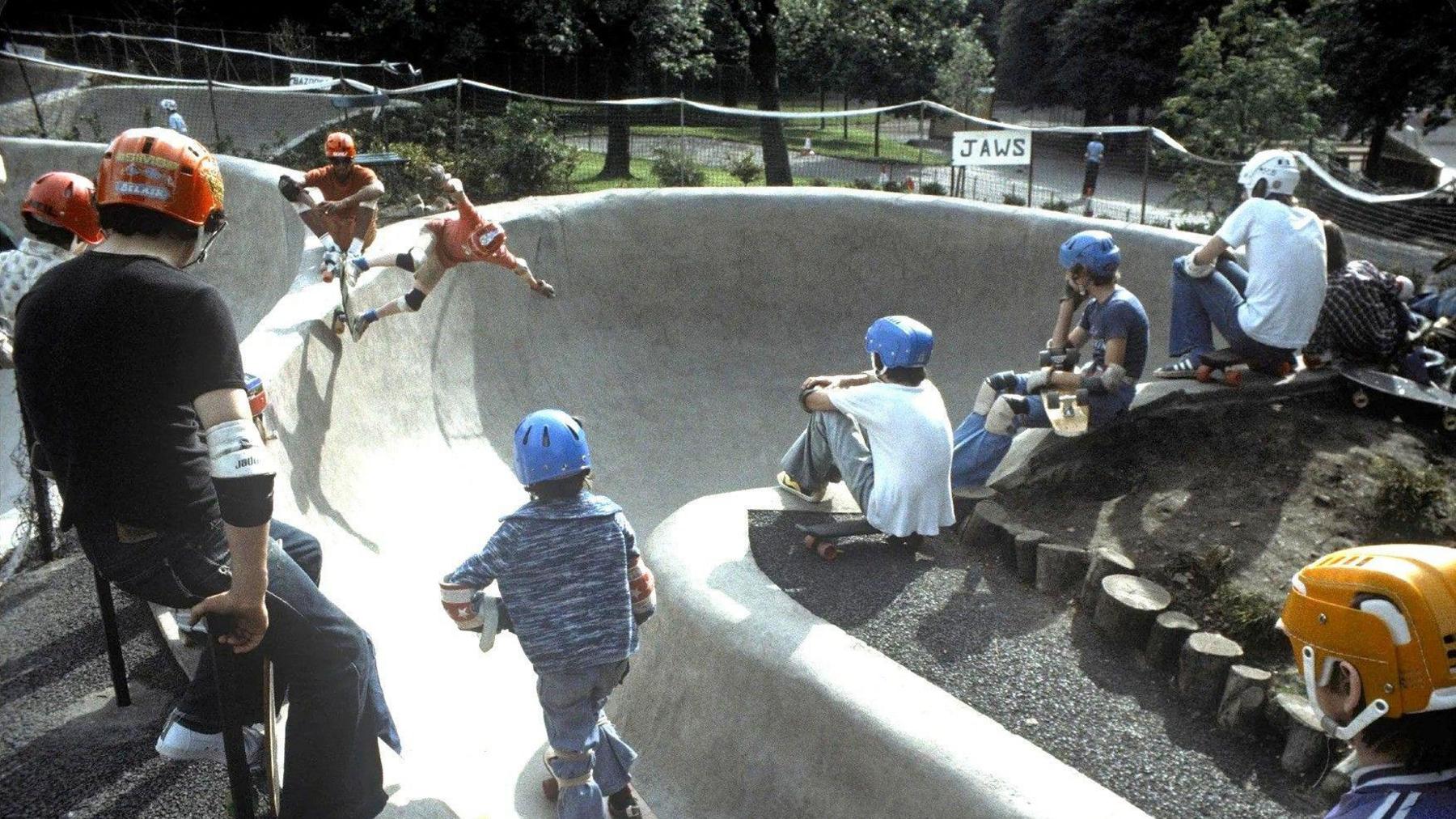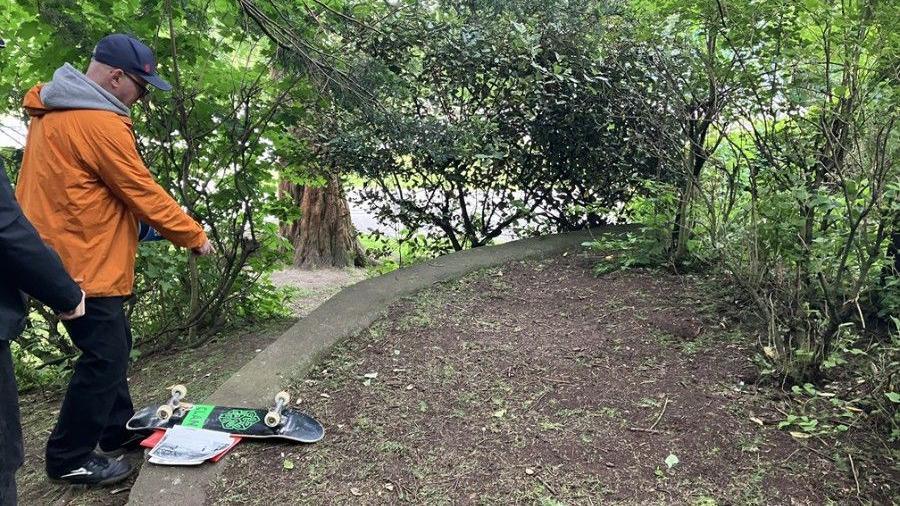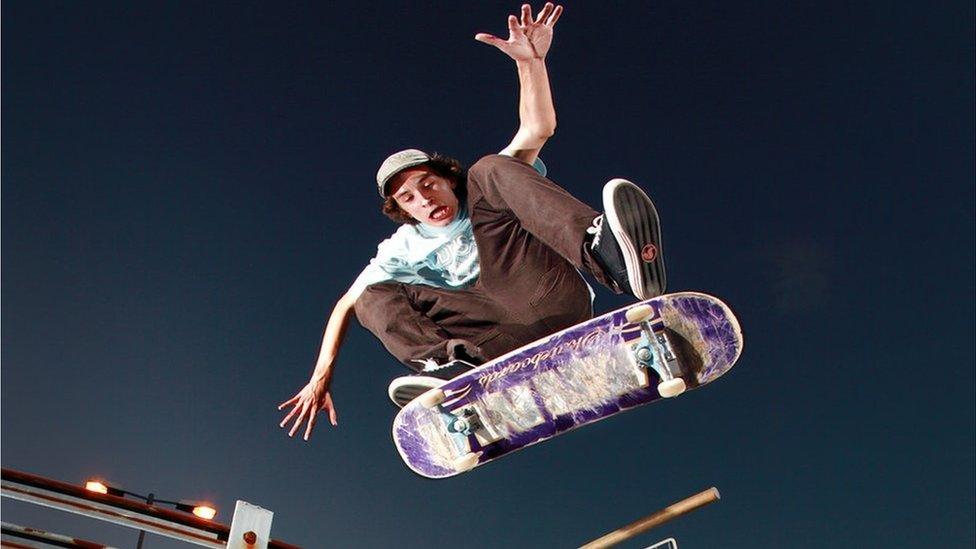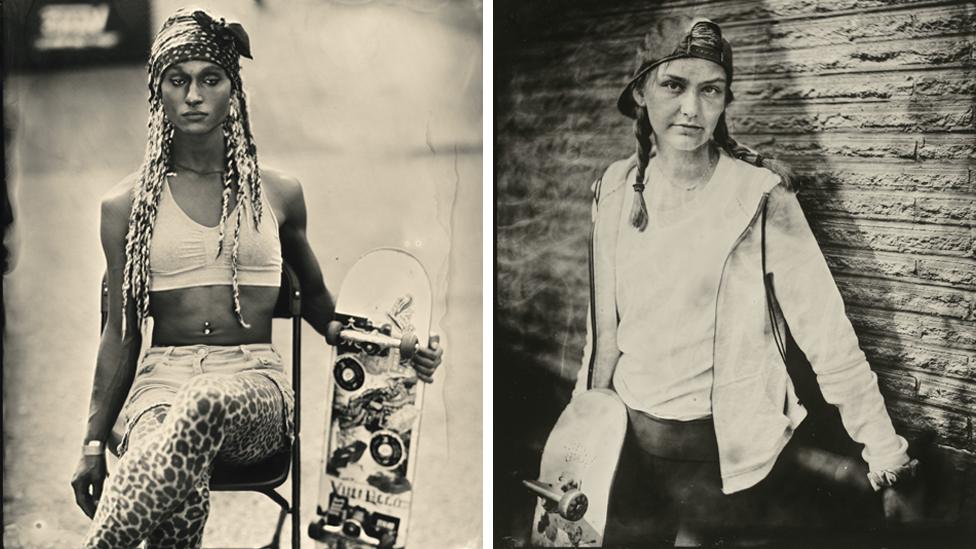Scotland's first skatepark to be dug up by archaeologists

The skatepark was hugely popular in the late 70s and early 80s
- Published
For five years it hosted the country's finest and keenest skateboarders, witnessing flips and tricks as a new subculture boomed in popularity.
Now Scotland's first ever outdoor skatepark is to be resurrected by a team of archaeologists hoping to preserve the site's legacy.
The University of Glasgow team will work with volunteers and students to undertake excavation and survey work at the former Kelvin Wheelies park in Kelvingrove Park.
Dr Kenny Brophy of the university said the project represented a chance to make sure the skatepark did not become forgotten or lost to history.
Members of the public are being asked to share memories, video and photographs of the Kelvin Wheelies, helping to create an online archive.
The skatepark - which at the time was considered state of the art - opened in May 1978 and featured bowls, a slalom run and a half-pipe, all with names like Jaws, Torpedo and Bazooka.
Sessions cost £1.80 for three hours and the venue was initially a huge hit, hosting the 1978 Scottish Skateboard Championships - the country's first ever national skateboarding competition.
However, concern about maintenance costs and safety led to the park's closure and then burial in 1983, just five years after opening.
See Scotland's first skatepark in its 80s heyday
Jamie Blair, the owner of Glasgow-based skateboarding shop Clan Skates and a former member of the Kelvingrove skateboard team, said he was thrilled that skaters have a chance to rediscover it again.
He recalled: "When Kelvin Wheelies opened in 1978, skaters from all over the UK flocked to this radical new facility.
"A park team was formed and for the next few years Glasgow was the dominant force in Scottish skateboarding.
"Sadly, a dip in skateboarding's popularity in the early 1980s and the construction of a rival skatepark in Livingston saw a decline."
Elements of the original site remain visible near the modern skatepark in Kelvingrove Park.
However, there is currently no information available to explain the significance of the site to Kelvingrove visitors or users of the modern skatepark.

Some of the original skatepark's features remain visible
Dr Kenny Brophy, senior lecturer in archaeology at the University of Glasgow and project leader, called the revival a unique opportunity.
He said: "There is a very real danger that this skatepark, a place that was so special for hundreds of young people just decades ago, will become forgotten and lost.
"Contemporary archaeology allows us the opportunity to explore even fairly recent events and places to jog memories.
"In the case of Kelvin Wheelies, this is a unique opportunity for a generation of skateboarders to relive the excitement of their youth and excavate their own memories of a place that was so special to them."
The fieldwork will last from 25-29 August and is being supported by the Society of Antiquaries of Scotland, which provided a £1,102 grant.
Skateboarding has risen again in popularity during the past 30 years, fuelled by popular computer games.
The sport made its Olympic debut at Tokyo 2020, and featured again at the Paris Olympics last year.
Related topics
- Published26 September 2019

- Published12 August 2020

- Attribution
- Published6 August 2024
